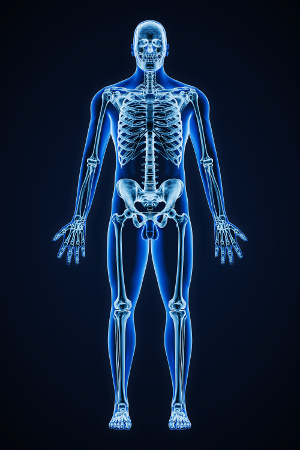afterLoad (456.48KB) (1.73ms)
afterInitialise (1.28MB) (14.9ms)
afterRoute (827.13KB) (3.54ms)
beforeRenderComponent com_content (35.02KB) (298μs)
Before Access::preloadComponents (all components) (67.27KB) (420μs)
After Access::preloadComponents (all components) (98.07KB) (611μs)
Before Access::preloadPermissions (com_content) (1.6KB) (20μs)
After Access::preloadPermissions (com_content) (3.29MB) (4.99ms)
Before Access::getAssetRules (id:62 name:com_content.category.20) (130.65KB) (93μs)
After Access::getAssetRules (id:62 name:com_content.category.20) (7.38KB) (49μs)
Before Access::getAssetRules (id:8 name:com_content) (51.77KB) (10.21ms)
After Access::getAssetRules (id:8 name:com_content) (6.17KB) (25μs)
afterRenderComponent com_content (1.46MB) (56.94ms)
afterDispatch (32.39KB) (1.62ms)
beforeRenderRawModule mod_articles_category (READ MORE...) (398.66KB) (8.77ms)
afterRenderRawModule mod_articles_category (READ MORE...) (64.74KB) (76.19ms)
beforeRenderRawModule mod_custom (BOOST YOUR IMMUNE DEFENSE) (6.45KB) (27μs)
afterRenderRawModule mod_custom (BOOST YOUR IMMUNE DEFENSE) (4.42KB) (999μs)
beforeRenderRawModule mod_articles_latest (Latest news) (976B) (16μs)
afterRenderRawModule mod_articles_latest (Latest news) (51.31KB) (90.32ms)
beforeRenderRawModule mod_tags_popular (Search) (2.09KB) (24μs)
afterRenderRawModule mod_tags_popular (Search) (27.61KB) (190ms)
beforeRenderRawModule mod_custom (the Vitamin and Mineral Guide) (960B) (27μs)
afterRenderRawModule mod_custom (the Vitamin and Mineral Guide) (1.02KB) (45μs)
beforeRenderRawModule mod_custom (Weight loss that works) (736B) (11μs)
afterRenderRawModule mod_custom (Weight loss that works) (928B) (22μs)
beforeRenderRawModule mod_custom (Get additionel and more detailed knowledge ) (752B) (9μs)
afterRenderRawModule mod_custom (Get additionel and more detailed knowledge ) (944B) (19μs)
beforeRenderRawModule mod_custom (Q10 goes by many names) (736B) (9μs)
afterRenderRawModule mod_custom (Q10 goes by many names) (928B) (18μs)
beforeRenderRawModule mod_custom (Check this before you buy a Q10 product) (752B) (9μs)
afterRenderRawModule mod_custom (Check this before you buy a Q10 product) (944B) (17μs)
beforeRenderRawModule mod_custom (Are you taking supplements) (736B) (9μs)
afterRenderRawModule mod_custom (Are you taking supplements) (2.28KB) (18μs)
beforeRenderRawModule mod_custom (Antiaging) (720B) (9μs)
afterRenderRawModule mod_custom (Antiaging) (912B) (17μs)
beforeRenderRawModule mod_custom (Exercise) (720B) (8μs)
afterRenderRawModule mod_custom (Exercise) (912B) (19μs)
beforeRenderRawModule mod_custom (Useful Links) (720B) (8μs)
afterRenderRawModule mod_custom (Useful Links) (1.02KB) (18μs)
beforeRenderModule mod_articles_category (READ MORE...) (268.2KB) (5.14ms)
afterRenderModule mod_articles_category (READ MORE...) (1.25KB) (68μs)
beforeRenderModule mod_custom (BOOST YOUR IMMUNE DEFENSE) (6.81KB) (16μs)
afterRenderModule mod_custom (BOOST YOUR IMMUNE DEFENSE) (1.28KB) (26μs)
beforeRenderModule mod_articles_latest (Latest news) (592B) (12μs)
afterRenderModule mod_articles_latest (Latest news) (1.27KB) (21μs)
beforeRenderModule mod_tags_popular (Search) (1.73KB) (12μs)
afterRenderModule mod_tags_popular (Search) (1.27KB) (20μs)
beforeRenderModule mod_custom (the Vitamin and Mineral Guide) (1.31KB) (9μs)
afterRenderModule mod_custom (the Vitamin and Mineral Guide) (1.28KB) (19μs)
beforeRenderModule mod_custom (Weight loss that works) (336B) (9μs)
afterRenderModule mod_custom (Weight loss that works) (1.27KB) (20μs)
beforeRenderModule mod_custom (Get additionel and more detailed knowledge ) (368B) (9μs)
afterRenderModule mod_custom (Get additionel and more detailed knowledge ) (1.3KB) (20μs)
beforeRenderModule mod_custom (Q10 goes by many names) (336B) (9μs)
afterRenderModule mod_custom (Q10 goes by many names) (1.27KB) (19μs)
beforeRenderModule mod_custom (Check this before you buy a Q10 product) (352B) (10μs)
afterRenderModule mod_custom (Check this before you buy a Q10 product) (1.28KB) (19μs)
beforeRenderModule mod_custom (Are you taking supplements) (352B) (9μs)
afterRenderModule mod_custom (Are you taking supplements) (1.28KB) (19μs)
beforeRenderModule mod_custom (Antiaging) (336B) (8μs)
afterRenderModule mod_custom (Antiaging) (1.27KB) (19μs)
beforeRenderModule mod_custom (Exercise) (336B) (8μs)
afterRenderModule mod_custom (Exercise) (1.25KB) (21μs)
beforeRenderModule mod_custom (Useful Links) (336B) (8μs)
afterRenderModule mod_custom (Useful Links) (3.77KB) (19μs)
beforeRenderRawModule mod_menu (Main Menu - English) (37.51KB) (1.78ms)
afterRenderRawModule mod_menu (Main Menu - English) (190.16KB) (2.96ms)
beforeRenderModule mod_menu (Main Menu - English) (720B) (5μs)
afterRenderModule mod_menu (Main Menu - English) (4.86KB) (61μs)
beforeRenderRawModule mod_languages (Sprogskift) (3.94KB) (19μs)
afterRenderRawModule mod_languages (Sprogskift) (21.85KB) (3.32ms)
beforeRenderModule mod_languages (Sprogskift) (720B) (5μs)
afterRenderModule mod_languages (Sprogskift) (5.31KB) (21μs)
beforeRenderRawModule mod_finder () (6.34KB) (11μs)
afterRenderRawModule mod_finder () (132.96KB) (5.81ms)
beforeRenderModule mod_finder () (704B) (5μs)
afterRenderModule mod_finder () (3.29KB) (34μs)
beforeRenderRawModule mod_custom () (6.62KB) (142μs)
afterRenderRawModule mod_custom () (26.52KB) (838μs)
beforeRenderModule mod_custom () (704B) (6μs)
afterRenderModule mod_custom () (1.23KB) (47μs)
beforeRenderRawModule mod_menu (Main Menu - English) (5.07KB) (104μs)
afterRenderRawModule mod_menu (Main Menu - English) (6.3KB) (734μs)
beforeRenderModule mod_menu (Main Menu - English) (720B) (3μs)
afterRenderModule mod_menu (Main Menu - English) (1.25KB) (42μs)
beforeRenderRawModule mod_languages (Sprogskift Mobil) (912B) (18μs)
afterRenderRawModule mod_languages (Sprogskift Mobil) (3.89KB) (2.35ms)
beforeRenderModule mod_languages (Sprogskift Mobil) (720B) (5μs)
afterRenderModule mod_languages (Sprogskift Mobil) (1.27KB) (35μs)
beforeRenderRawModule mod_finder () (2.3KB) (11μs)
afterRenderRawModule mod_finder () (6.29KB) (1.09ms)
beforeRenderModule mod_finder () (704B) (6μs)
afterRenderModule mod_finder () (1.23KB) (50μs)
beforeRenderRawModule mod_custom () (8.66KB) (1.02ms)
afterRenderRawModule mod_custom () (904B) (147μs)
beforeRenderModule mod_custom () (704B) (3μs)
afterRenderModule mod_custom () (2.43KB) (28μs)
beforeRenderRawModule mod_custom () (688B) (84μs)
afterRenderRawModule mod_custom () (896B) (98μs)
beforeRenderModule mod_custom () (704B) (3μs)
afterRenderModule mod_custom () (2.71KB) (22μs)
afterRender (299.21KB) (11.43ms)
| 1 x afterRenderRawModule mod_tags_popular (Search) (27.61KB) (37.88%) | 190.22ms |
| 1 x afterRenderRawModule mod_articles_latest (Latest news) (51.31KB) (17.99%) | 90.32ms |
| 1 x afterRenderRawModule mod_articles_category (READ MORE...) (64.74KB) (15.17%) | 76.19ms |
| 1 x afterRenderComponent com_content (1.46MB) (11.34%) | 56.94ms |
| 1 x afterInitialise (1.28MB) (2.97%) | 14.90ms |
| 1 x afterRender (299.21KB) (2.28%) | 11.43ms |
| 1 x Before Access::getAssetRules (id:8 name:com_content) (51.77KB) (2.03%) | 10.21ms |
| 1 x beforeRenderRawModule mod_articles_category (READ MORE...) (398.66KB) (1.75%) | 8.77ms |
| 1 x afterRenderRawModule mod_finder () (132.96KB) (1.16%) | 5.81ms |
| 1 x beforeRenderModule mod_articles_category (READ MORE...) (268.2KB) (1.02%) | 5.14ms |
| 1 x After Access::preloadPermissions (com_content) (3.29MB) (0.99%) | 4.99ms |
| 1 x afterRoute (827.13KB) (0.71%) | 3.54ms |
| 1 x afterRenderRawModule mod_languages (Sprogskift) (21.85KB) (0.66%) | 3.32ms |
| 1 x afterRenderRawModule mod_menu (Main Menu - English) (190.16KB) (0.59%) | 2.96ms |
| 1 x afterRenderRawModule mod_languages (Sprogskift Mobil) (3.89KB) (0.47%) | 2.35ms |
| 1 x beforeRenderRawModule mod_menu (Main Menu - English) (37.51KB) (0.36%) | 1.78ms |
| 1 x afterLoad (456.48KB) (0.34%) | 1.73ms |
| 1 x afterDispatch (32.39KB) (0.32%) | 1.62ms |
| 1 x afterRenderRawModule mod_finder () (6.29KB) (0.22%) | 1.09ms |
| 1 x beforeRenderRawModule mod_custom () (8.66KB) (0.2%) | 1.02ms |
| 1 x afterRenderRawModule mod_custom (BOOST YOUR IMMUNE DEFENSE) (4.42KB) (0.2%) | 999μs |
| 1 x afterRenderRawModule mod_custom () (26.52KB) (0.17%) | 838μs |
| 1 x afterRenderRawModule mod_menu (Main Menu - English) (6.3KB) (0.15%) | 734μs |
| 1 x After Access::preloadComponents (all components) (98.07KB) (0.12%) | 611μs |
| 1 x Before Access::preloadComponents (all components) (67.27KB) (0.08%) | 420μs |
| 1 x beforeRenderComponent com_content (35.02KB) (0.06%) | 298μs |
| 1 x afterRenderRawModule mod_custom () (904B) (0.03%) | 147μs |
| 1 x beforeRenderRawModule mod_custom () (6.62KB) (0.03%) | 142μs |
| 1 x beforeRenderRawModule mod_menu (Main Menu - English) (5.07KB) (0.02%) | 104μs |
| 1 x afterRenderRawModule mod_custom () (896B) (0.02%) | 98μs |
| 1 x Before Access::getAssetRules (id:62 name:com_content.category.20) (130.65KB) (0.02%) | 93μs |
| 1 x beforeRenderRawModule mod_custom () (688B) (0.02%) | 84μs |
| 1 x afterRenderModule mod_articles_category (READ MORE...) (1.25KB) (0.01%) | 68μs |
| 1 x afterRenderModule mod_menu (Main Menu - English) (4.86KB) (0.01%) | 61μs |
| 1 x afterRenderModule mod_finder () (1.23KB) (0.01%) | 50μs |
| 1 x After Access::getAssetRules (id:62 name:com_content.category.20) (7.38KB) (0.01%) | 49μs |
| 1 x afterRenderModule mod_custom () (1.23KB) (0.01%) | 47μs |
| 1 x afterRenderRawModule mod_custom (the Vitamin and Mineral Guide) (1.02KB) (0.01%) | 45μs |
| 1 x afterRenderModule mod_menu (Main Menu - English) (1.25KB) (0.01%) | 42μs |
| 1 x afterRenderModule mod_languages (Sprogskift Mobil) (1.27KB) (0.01%) | 35μs |
| 1 x afterRenderModule mod_finder () (3.29KB) (0.01%) | 34μs |
| 1 x afterRenderModule mod_custom () (2.43KB) (0.01%) | 28μs |
| 1 x beforeRenderRawModule mod_custom (BOOST YOUR IMMUNE DEFENSE) (6.45KB) (0.01%) | 27μs |
| 1 x beforeRenderRawModule mod_custom (the Vitamin and Mineral Guide) (960B) (0.01%) | 27μs |
| 1 x afterRenderModule mod_custom (BOOST YOUR IMMUNE DEFENSE) (1.28KB) (0.01%) | 26μs |
| 1 x After Access::getAssetRules (id:8 name:com_content) (6.17KB) (0%) | 25μs |
| 1 x beforeRenderRawModule mod_tags_popular (Search) (2.09KB) (0%) | 24μs |
| 1 x afterRenderRawModule mod_custom (Weight loss that works) (928B) (0%) | 22μs |
| 1 x afterRenderModule mod_custom () (2.71KB) (0%) | 22μs |
| 1 x afterRenderModule mod_articles_latest (Latest news) (1.27KB) (0%) | 21μs |
| 1 x afterRenderModule mod_custom (Exercise) (1.25KB) (0%) | 21μs |
| 1 x afterRenderModule mod_languages (Sprogskift) (5.31KB) (0%) | 21μs |
| 1 x afterRenderModule mod_tags_popular (Search) (1.27KB) (0%) | 20μs |
| 1 x afterRenderModule mod_custom (Weight loss that works) (1.27KB) (0%) | 20μs |
| 1 x afterRenderModule mod_custom (Get additionel and more detailed knowledge ) (1.3KB) (0%) | 20μs |
| 1 x Before Access::preloadPermissions (com_content) (1.6KB) (0%) | 20μs |
| 1 x afterRenderRawModule mod_custom (Get additionel and more detailed knowledge ) (944B) (0%) | 19μs |
| 1 x afterRenderRawModule mod_custom (Exercise) (912B) (0%) | 19μs |
| 1 x afterRenderModule mod_custom (Check this before you buy a Q10 product) (1.28KB) (0%) | 19μs |
| 1 x afterRenderModule mod_custom (Antiaging) (1.27KB) (0%) | 19μs |
| 1 x beforeRenderRawModule mod_languages (Sprogskift) (3.94KB) (0%) | 19μs |
| 1 x afterRenderModule mod_custom (the Vitamin and Mineral Guide) (1.28KB) (0%) | 19μs |
| 1 x afterRenderModule mod_custom (Q10 goes by many names) (1.27KB) (0%) | 19μs |
| 1 x afterRenderModule mod_custom (Are you taking supplements) (1.28KB) (0%) | 19μs |
| 1 x afterRenderModule mod_custom (Useful Links) (3.77KB) (0%) | 19μs |
| 1 x afterRenderRawModule mod_custom (Are you taking supplements) (2.28KB) (0%) | 18μs |
| 1 x afterRenderRawModule mod_custom (Useful Links) (1.02KB) (0%) | 18μs |
| 1 x beforeRenderRawModule mod_languages (Sprogskift Mobil) (912B) (0%) | 18μs |
| 1 x afterRenderRawModule mod_custom (Q10 goes by many names) (928B) (0%) | 18μs |
| 1 x afterRenderRawModule mod_custom (Antiaging) (912B) (0%) | 17μs |
| 1 x afterRenderRawModule mod_custom (Check this before you buy a Q10 product) (944B) (0%) | 17μs |
| 1 x beforeRenderRawModule mod_articles_latest (Latest news) (976B) (0%) | 16μs |
| 1 x beforeRenderModule mod_custom (BOOST YOUR IMMUNE DEFENSE) (6.81KB) (0%) | 16μs |
| 1 x beforeRenderModule mod_articles_latest (Latest news) (592B) (0%) | 12μs |
| 1 x beforeRenderModule mod_tags_popular (Search) (1.73KB) (0%) | 12μs |
| 3 x beforeRenderModule mod_custom () (704B) (0%) | 12μs |
| 1 x beforeRenderRawModule mod_finder () (6.34KB) (0%) | 11μs |
| 2 x beforeRenderModule mod_finder () (704B) (0%) | 11μs |
| 1 x beforeRenderRawModule mod_custom (Weight loss that works) (736B) (0%) | 11μs |
| 1 x beforeRenderRawModule mod_finder () (2.3KB) (0%) | 11μs |
| 1 x beforeRenderModule mod_custom (Check this before you buy a Q10 product) (352B) (0%) | 10μs |
| 1 x beforeRenderRawModule mod_custom (Q10 goes by many names) (736B) (0%) | 9μs |
| 1 x beforeRenderRawModule mod_custom (Check this before you buy a Q10 product) (752B) (0%) | 9μs |
| 1 x beforeRenderRawModule mod_custom (Are you taking supplements) (736B) (0%) | 9μs |
| 1 x beforeRenderModule mod_custom (the Vitamin and Mineral Guide) (1.31KB) (0%) | 9μs |
| 1 x beforeRenderModule mod_custom (Weight loss that works) (336B) (0%) | 9μs |
| 1 x beforeRenderModule mod_custom (Get additionel and more detailed knowledge ) (368B) (0%) | 9μs |
| 1 x beforeRenderModule mod_custom (Q10 goes by many names) (336B) (0%) | 9μs |
| 1 x beforeRenderModule mod_custom (Are you taking supplements) (352B) (0%) | 9μs |
| 1 x beforeRenderRawModule mod_custom (Get additionel and more detailed knowledge ) (752B) (0%) | 9μs |
| 1 x beforeRenderRawModule mod_custom (Antiaging) (720B) (0%) | 9μs |
| 1 x beforeRenderModule mod_custom (Antiaging) (336B) (0%) | 8μs |
| 1 x beforeRenderModule mod_custom (Useful Links) (336B) (0%) | 8μs |
| 2 x beforeRenderModule mod_menu (Main Menu - English) (720B) (0%) | 8μs |
| 1 x beforeRenderRawModule mod_custom (Exercise) (720B) (0%) | 8μs |
| 1 x beforeRenderRawModule mod_custom (Useful Links) (720B) (0%) | 8μs |
| 1 x beforeRenderModule mod_custom (Exercise) (336B) (0%) | 8μs |
| 1 x beforeRenderModule mod_languages (Sprogskift) (720B) (0%) | 5μs |
| 1 x beforeRenderModule mod_languages (Sprogskift Mobil) (720B) (0%) | 5μs |
 Magnesium is vital for our health and for cell division. Magnesium deficiency, on the other hand, increases the risk of damage to the cellular DNA, which can result in a number of different chronic degenerative diseases, according to a new study from University of South Australia. The researchers also observed that magnesium helps to regulate a particular amino acid. Elevated blood levels of this compound are known to increase the risk of Alzheimer’s disease, Parkinson’s disease, gastrointestinal diseases, diabetes, and several types of cancer. Many people lack magnesium because of unhealthy eating habits, stimulant abuse, medicine use, and stress.
Magnesium is vital for our health and for cell division. Magnesium deficiency, on the other hand, increases the risk of damage to the cellular DNA, which can result in a number of different chronic degenerative diseases, according to a new study from University of South Australia. The researchers also observed that magnesium helps to regulate a particular amino acid. Elevated blood levels of this compound are known to increase the risk of Alzheimer’s disease, Parkinson’s disease, gastrointestinal diseases, diabetes, and several types of cancer. Many people lack magnesium because of unhealthy eating habits, stimulant abuse, medicine use, and stress.







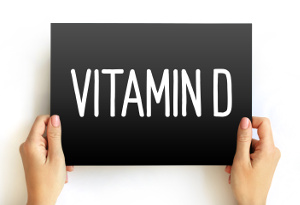

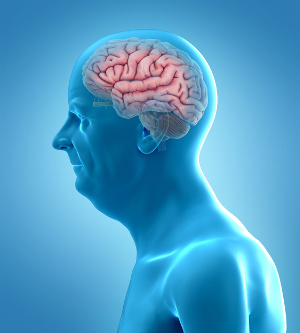
 Age-related loss of muscle mass is a natural process and may result in increased feebleness and even disability. Strength training and diet play a major role, and older people need more protein, especially an essential amino acid called leucine. In addition, supplements of vitamin D, omega-3 fatty acids, and probiotics can have a positive impact on muscle mass and muscle strength, according to a review article that is published in Frontiers in Nutrition.
Age-related loss of muscle mass is a natural process and may result in increased feebleness and even disability. Strength training and diet play a major role, and older people need more protein, especially an essential amino acid called leucine. In addition, supplements of vitamin D, omega-3 fatty acids, and probiotics can have a positive impact on muscle mass and muscle strength, according to a review article that is published in Frontiers in Nutrition. Ever since the COVID-19 pandemic started, scientists have focused on
Ever since the COVID-19 pandemic started, scientists have focused on 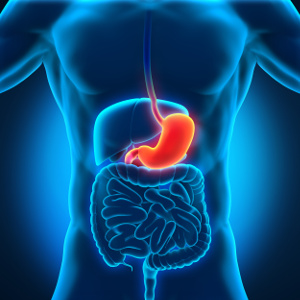

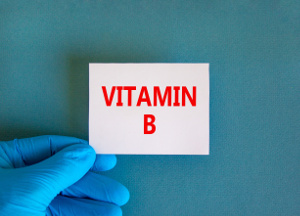
 The two omega-3 fatty acids, EPA and DHA, are of vital importance to the development of a baby’s brain and central nervous system during pregnancy and the first years of life. The best sources of these fatty acids are oily fish and fish oil supplements. There is widespread deficiency of these fatty acids, which increases the risk of a lower IQ, ADHD, depression, or other neurological disturbances in the baby, according to a review article published in Nutrients. It is also important for brain health to balance one’s intake of
The two omega-3 fatty acids, EPA and DHA, are of vital importance to the development of a baby’s brain and central nervous system during pregnancy and the first years of life. The best sources of these fatty acids are oily fish and fish oil supplements. There is widespread deficiency of these fatty acids, which increases the risk of a lower IQ, ADHD, depression, or other neurological disturbances in the baby, according to a review article published in Nutrients. It is also important for brain health to balance one’s intake of 
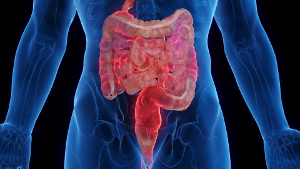 Promising results have been seen with the use of
Promising results have been seen with the use of 